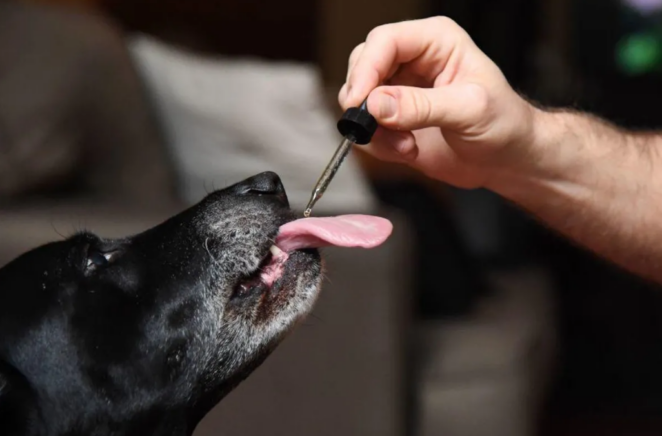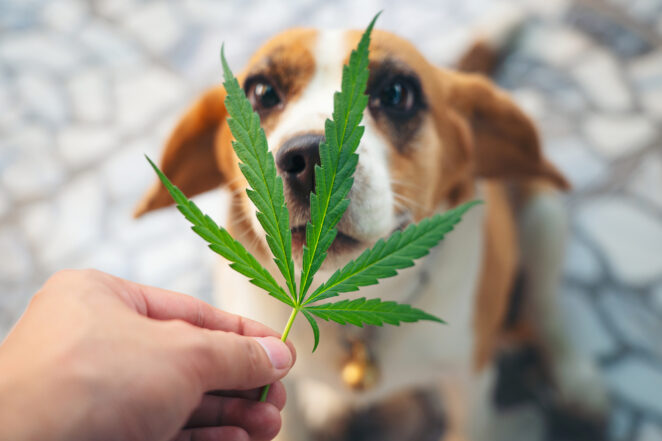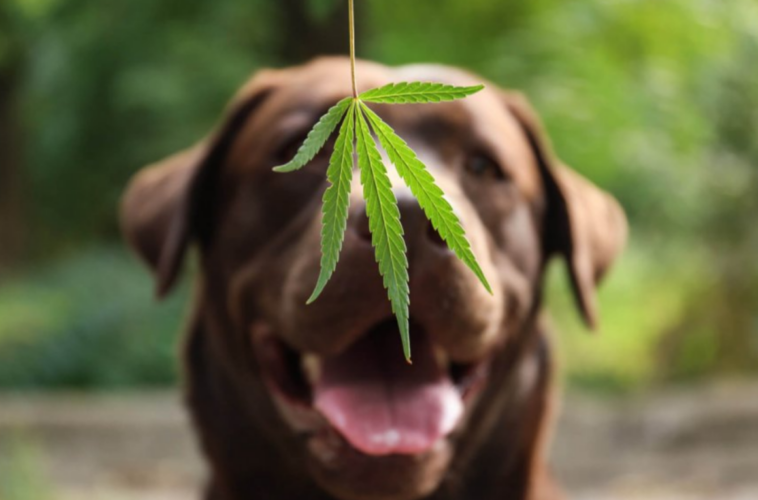In recent years, the cultural dialogue surrounding cannabis has dramatically evolved. No longer limited to human use, cannabis and its derivatives have found a new audience: our pets.
As pet owners search for alternative treatments to a variety of ailments, from anxiety to chronic pain, cannabis-based solutions have emerged as a compelling option.
However, it’s essential to approach the subject with care and knowledge.
The Science Behind Cannabis and Animals
Cannabinoids and the Endocannabinoid System
At the heart of the cannabis-pet connection lies the endocannabinoid system (ECS). Present in all mammals, the ECS regulates numerous physiological processes, including mood, appetite, and pain sensation.
Humans and animals produce endocannabinoids, natural compounds that interact with this system. Cannabis contains plant-based compounds called phytocannabinoids, with THC (tetrahydrocannabinol) and CBD (cannabidiol) being the most well-known. These compounds can influence the ECS, leading to various therapeutic effects.
Notably, while THC is often associated with the ‘high’ in humans, CBD does not have intoxicating effects, which is why it is generally favored for pet treatments. In addition, the balance of endocannabinoids may vary between species, meaning that the influence of external sources, like CBD, can vary.
Species Differences

It’s crucial to recognize that the ECS in pets, especially dogs, differs from humans. Due to this, animals can be more sensitive to the effects of cannabis. An amount safe for human consumption might be toxic for a pet.
Moreover, the rate at which different animals metabolize cannabis can vary. This means that the duration and intensity of effects might differ between a dog, a cat, or other pets, even if given the same dose relative to their body weight.
Potential Benefits of Cannabis for Pets
Pain Management
Many pets suffer from chronic pain due to arthritis, injury, or illness. CBD, in particular, has anti-inflammatory properties that can help alleviate such discomforts.
Some studies suggest that CBD may reduce the pain without the side effects commonly associated with traditional pain medications.
Furthermore, continuous pain can lead to behavioral changes in pets, such as reduced activity or even aggression. Incorporating cannabis treatments can lead to a significant improvement in their overall demeanor and quality of life.
Anxiety and Stress Relief
Like humans, pets can suffer from anxiety, whether from thunderstorms, separation, or other triggers.
Cannabis derivatives can have a calming effect, helping pets remain relaxed in stressful situations.
In many cases, pet owners have found that after administering CBD treatments, their pets become more receptive to training or behavioral modifications, showcasing a deeper sense of trust and calm.
Other Potential Benefits
- Neuroprotective properties: There is preliminary evidence to suggest that CBD may protect nerve cells from damage and degeneration.
- Reduction in seizure frequency: Some pets with epilepsy have shown a decrease in the frequency and severity of seizures when treated with CBD.
Some emerging studies also hint at the potential benefits of cannabis in appetite stimulation, particularly for pets undergoing treatments like chemotherapy, which can often result in decreased appetite.
Safe Administration and Dosage

Ensuring your pet’s safety is paramount. Here are some guidelines to consider:
- Always Consult a Vet: Before introducing any cannabis-based product to your pet, always consult with a veterinarian familiar with its use.
- Start Small: Begin with a low dose and monitor your pet’s reaction. Adjust as necessary.
- Avoid THC: High levels of THC can be toxic to pets, especially dogs. Look for products that are primarily CBD-based.
- Consider Delivery Methods: Choose pet-friendly products, like specially formulated tinctures or treats.
While pet-focused cannabis products are becoming more prevalent, it’s essential to opt for reputable brands and manufacturers. Companies like Homegrown Cannabis CO emphasize quality, ensuring that products undergo rigorous testing and are free from harmful contaminants. Always check product reviews, third-party lab results, and ensure that products are free from harmful additives.
I had had so many encounters that I even bought an ultrasonic dog repellent device with the hope that the unpleasantness would cause the dog to run from me, but there was no guarantee it would work when you needed it to.
Potential Side Effects and Risks
As with any treatment, there are potential side effects:
- Overconsumption: Signs include lethargy, disorientation, dilated pupils, and even loss of bodily control.
- Drug Interactions: Cannabis can interact with other medications, either enhancing or diminishing their effects.
- Long-term effects: The long-term effects of cannabis use in pets remain under-researched. Regular check-ups and monitoring are essential.
Additionally, just as humans can have individual reactions to medications, pets can exhibit varied responses to cannabis. It’s vital to monitor your pet closely during initial administrations and report any unusual behaviors to a vet promptly.
Conclusion

The growing intersection of cannabis and pet care offers an exciting realm of possibilities. While initial findings present promising benefits, it’s crucial for pet owners to approach this natural remedy with research, consultation, and caution.
By staying informed and putting our pets’ well-being first, we can harness the potential of cannabis to enhance their quality of life in a safe and effective manner.
It remains paramount that pet owners act responsibly, prioritizing their pets’ health and ensuring that cannabis serves as a boon rather than a detriment.




